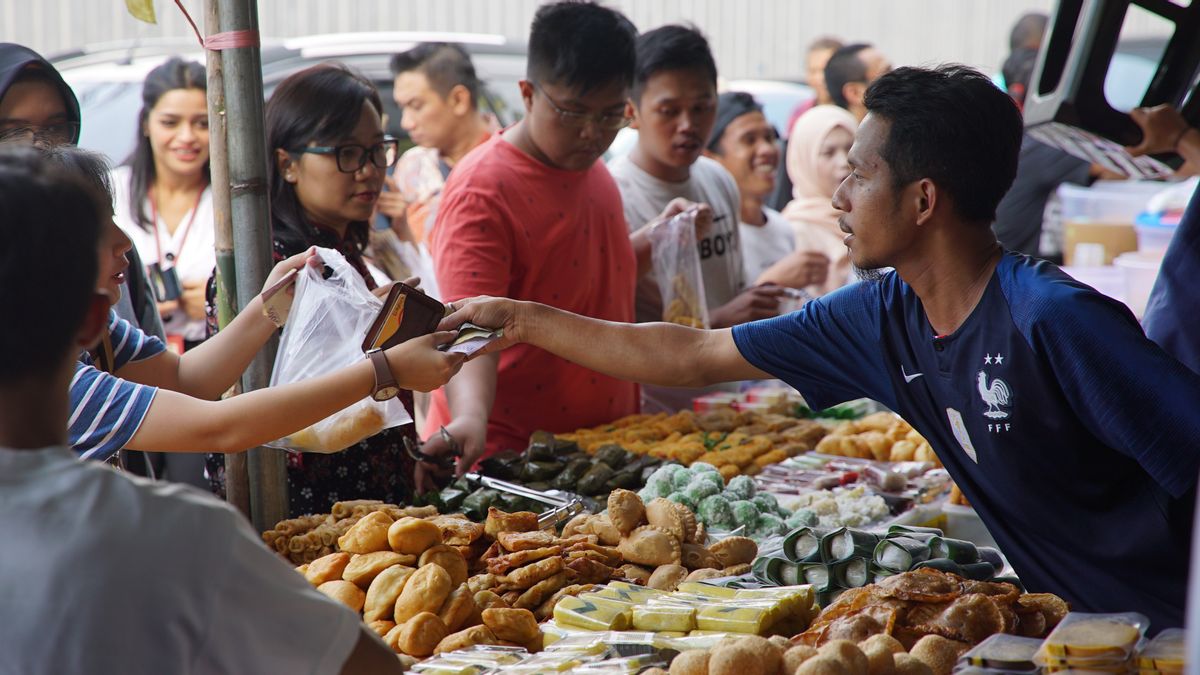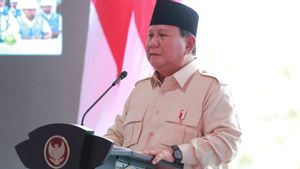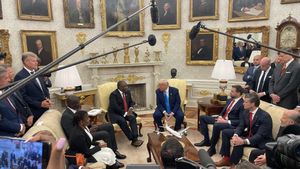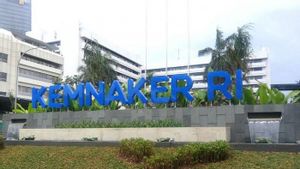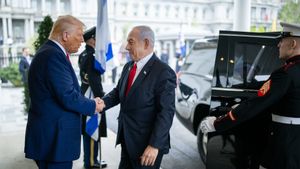JAKARTA - The People's Business Credit Program (KUR) is deemed necessary to be more disseminated so that residents in various regions do not become entangled in various forms of illegal loans, such as accounts payable through online networks that have high interest rates.
Member of Commission XI DPR RI Heri Gunawan said, KUR is very important to develop UMKM so that it needs to be disseminated more to people who need capital.
"Do not let people who are not absorbed by KUR instead run to financial companies whose interest is higher and instead ensnare them," said Heri in a statement received on Monday, December 23.
For this reason, he said, the central government is also expected to improve coordination and synergy with Bank Indonesia (BI) and the Financial Services Authority (OJK) to socialize and supervise the implementation of KUR distribution regulations without collateral through banks.
The Gerindra politician stated that banks in each region must also be given a comprehensive explanation and understanding, so that the distribution of KUR is according to the rules and right on target, including preventing wrongly setting interest on loans above KUR without collateral.
"The rules of the game must be strict from the government in coordination between BI and OJK to be able to sit together, so that the rules of the game that are issued can be fully captured in their respective branches or regions," he said.
He also asked the OJK to carry out maximum supervision of the growth of technology or fintech financial companies to anticipate the target of KUR without collateral, switching to fintech with high interest rates.
Deputy Chairman of Commission XI DPR RI, Fathan, assessed that the KUR program carried out by state-owned banks in Indonesia needs to be improved in monitoring and evaluating its distribution.
"This KUR is effective in reaching MSMEs and national development is achieved, so the DPR sees the need to improve the quality of its credit distribution and also needs more comprehensive supervision of matters," he said.
According to the PKB politician, KUR has become a mainstay of MSMEs in developing their businesses, so that their management needs to be done even better, and the number is also worth increasing.
He is of the opinion that the formation of the National KUR Agency can be one way to make KUR distribution more targeted, especially targeting villages.
The Coordinating Ministry for Economic Affairs noted that the realization of the distribution of People's Business Credit (KUR) so far this year has reached Rp. 127.3 trillion. This realization met 90.9 percent of the disbursement target of IDR 140 trillion for 2019.
Deputy of the Coordinating Ministry for Macroeconomic and Financial Coordination of the Coordinating Ministry for Economic Affairs Iskandar Simorangkir said that the distribution of KUR so far this year is quite good. "This is reflected in the low level of bad credit ratio (NPL) KUR, which is only 1.26 percent," he said.
Meanwhile, accumulatively from 2015 to October 2019, KUR has been distributed to 18.3 million debtors or 12 million based on NIK with a total ceiling of IDR 460.62 trillion.
Coordinating Minister for the Economy Airlangga Hartarto said the government would continue to spur the distribution of KUR as an effort to develop MSMEs and their contribution to national economic growth and equity.
One of the ways is by reducing the KUR interest rate from 7 percent to 6 percent in 2020. The reduction in interest rates is followed by a target of increasing the volume of KUR disbursement by 36% to IDR 190 trillion next year.
"The target is that KUR distribution can continue to increase until it reaches Rp 325 trillion in 2024," said Airlangga.
The government has also increased the maximum KUR micro ceiling from IDR 25 million to IDR 50 million per debtor, as well as the total accumulated KUR Micro ceiling for the trade sector from IDR 100 million to IDR 200 million in 2020.
Airlangga hopes that the change in the KUR policy can open opportunities and access to finance for MSMEs from formal financial institutions more easily, cheaply, and quickly.
Likewise with the ease of other financing for micro-businesses that are not bankable (unbankable) to medium-sized businesses that have been bankable, ranging from the Community Development Partnership Program (PKBL) from BUMN, Mekaar financing from PT PNM, LPDB Revolving Fund, Micro Waqf Bank (BWF) ), Ministry of Finance ultra-micro business financing.
The English, Chinese, Japanese, Arabic, and French versions are automatically generated by the AI. So there may still be inaccuracies in translating, please always see Indonesian as our main language. (system supported by DigitalSiber.id)
